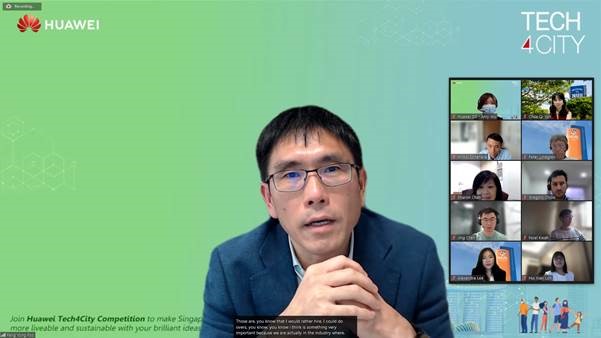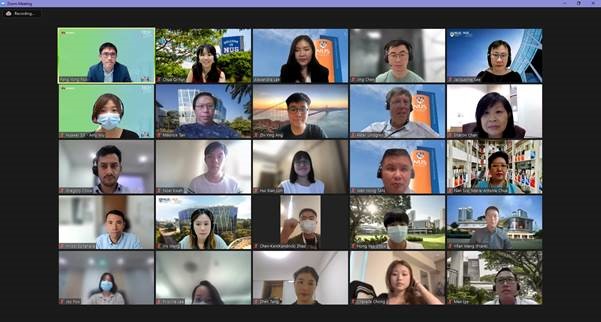The latest edition of the Asian Business Series webinar on 17 August featured Mr Foo Fang Yong, CEO of Huawei International, who shared his insights on 5G technology and its impact on the economy.
Datafication
Mr Foo discussed 5G’s emergence, its capabilities and use cases. Driven by the emergence of an information civilisation with data as its core, 5G, cloud technology, and AI are overtaking everything from highways to factories and engines.
“What we see is what we call datafication, supported by 5G, cloud and AI,” noted Mr Foo. “Datafication is an organisation practice, a way of work where business decision and operations process become fully integrated as one,” he said. The pandemic, by forcing consumers to go online, has also played a role in accelerating the pace of digitalisation including 5G adoption in organisations, industries and countries.

Mr Foo presenting at the webinar

Participants in the Asian Business Series webinar
5G’s impact
Mr Foo detailed 5G’s advantages over the commonly-used 4G and Wi-Fi. For instance, 5G’s higher bandwidth compared with the two wireless technologies allow more devices such as factory robots to be connected. 5G’s higher speed also enables faster data sharing, while its low latency enables remote operations such as real-time surgery.
5G’s transformational role in the economy can already be seen in several vertical industries, pointed out Mr Foo, sharing an example of its deployment in a container terminal. At the port, container cranes that require an operator to man have been replaced by unmanned cranes that are remotely controlled. A single operator can remotely control up to four container cranes, saving labour resources. Even the trucks that move containers and their drivers were replaced by robot trucks that can self-drive, offload and even avoid obstructions.
Making 5G work
However, Mr Foo cautioned that 5G cannot cause transformation by itself. “It is not the technology that matters, but the integration of technology into the industry. There’s a lot of localisation and innovation that need to happen before we realise 5G’s capability,” he said.
And the work with 5G could lead to a positive market impact. “This gives birth to a different ecosystem upstream and downstream. That’s going to drive the productivity of the economic capability of the country,” said Mr Foo.
Singapore is at the forefront in ASEAN in terms of 5G rollout as it is the first to set up the 5G SA standard infrastructure, noted Mr Foo. This bodes well for Singapore’s digital strategy. “The competitive success for the digital economy lies in gaining a national advantage and having an edge in its digital infrastructure, where technology plays a vital role,” concludes Mr Foo.





